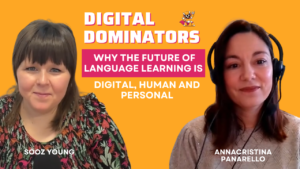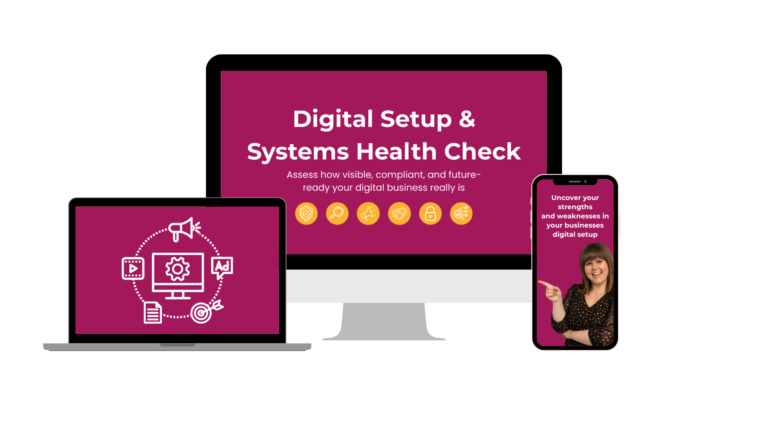In today’s rapidly evolving world, the landscape of skills required for success is constantly changing. The traditional emphasis on technical expertise and knowledge is being complemented by a growing demand for soft skills that enable individuals to navigate uncertainty, make informed decisions, nurture relationships, solve problems with innovation, work effectively in diverse teams, and harness technology for success. As the global economy becomes increasingly interconnected and technology continues to reshape industries, the ability to adapt, think critically, demonstrate emotional intelligence, unleash creativity, collaborate effectively, and possess digital literacy has become essential for thriving in the 21st century.
The shift in the landscape of skills is driven by several factors, including the rise of automation and artificial intelligence, the increasing complexity of global challenges, and the growing importance of human-centered approaches to problem-solving. As a result, individuals are being called upon to develop a broader set of competencies that enable them to thrive in an environment characterized by rapid change, ambiguity, and interdependence. This article will explore the key soft skills that are shaping the future of work and discuss why they are essential for success in the modern world.
Key Takeaways
- The landscape of skills is constantly changing, requiring individuals to adapt and develop new competencies.
- Adaptability is crucial for navigating uncertainty and change in the modern world.
- Critical thinking is essential for making informed decisions in a complex and rapidly changing environment.
- Emotional intelligence is important for nurturing relationships and building resilience in the face of challenges.
- Creativity is key for solving problems with innovation and imagination in a rapidly evolving world.
- Collaboration is essential for working effectively in diverse teams and achieving common goals.
- Digital literacy is crucial for harnessing technology and staying competitive in the modern workforce.
Adaptability: Navigating Uncertainty and Change
The Willingness to Embrace Change
One of the key aspects of adaptability is the willingness to step out of one’s comfort zone and embrace new opportunities for growth and development. This may involve taking on new responsibilities, learning new skills, or exploring unfamiliar territories. By being open to change and continuously seeking ways to improve oneself, individuals can position themselves as valuable assets in any organization.
Remaining Calm in the Face of Adversity
Moreover, adaptability also involves being able to remain calm and composed in the face of adversity, demonstrating resilience in times of crisis, and bouncing back from setbacks with renewed determination.
Cultivating a Mindset of Flexibility and Resilience
In conclusion, adaptability is a vital skill that enables individuals to thrive in an ever-changing world. By cultivating a mindset of flexibility, openness, and resilience, individuals can position themselves for success in their personal and professional lives.
Critical Thinking: Making Informed Decisions in a Complex World

Critical thinking is the ability to analyze information objectively, evaluate different perspectives, and make informed decisions based on evidence and reasoning. In an increasingly complex and interconnected world, the capacity to think critically is essential for navigating the myriad of challenges and opportunities that arise on a daily basis. Whether it’s evaluating the credibility of sources, solving complex problems, or making strategic decisions, individuals who can think critically are better equipped to succeed in their endeavors.
One of the key components of critical thinking is the ability to question assumptions and consider alternative viewpoints. By challenging established beliefs and exploring different perspectives, individuals can gain a deeper understanding of complex issues and make more informed decisions. Moreover, critical thinking also involves being able to analyze information systematically, identify patterns and trends, and draw logical conclusions based on evidence.
In conclusion, critical thinking is a fundamental skill that empowers individuals to make sound decisions in a complex world. By honing their ability to analyze information objectively and evaluate different perspectives, individuals can position themselves as effective problem-solvers and decision-makers in any context.
Emotional Intelligence: Nurturing Relationships and Resilience
Emotional intelligence is the ability to recognize and understand one’s own emotions as well as those of others, and to use this awareness to manage one’s behavior and relationships effectively. In today’s interconnected world, where collaboration and teamwork are essential for success, emotional intelligence has become a critical skill for building strong relationships, fostering resilience, and navigating interpersonal dynamics. One of the key aspects of emotional intelligence is self-awareness – the ability to recognize one’s own emotions, strengths, weaknesses, and values.
By understanding their own emotions and how they impact their thoughts and actions, individuals can develop greater self-control and make more conscious decisions. Additionally, emotional intelligence also involves empathy – the capacity to understand and relate to the emotions of others. By demonstrating empathy, individuals can build trust, foster cooperation, and navigate conflicts more effectively.
In conclusion, emotional intelligence is a vital skill that enables individuals to nurture relationships, build resilience, and navigate interpersonal dynamics with greater effectiveness. By developing self-awareness and empathy, individuals can position themselves as effective communicators and collaborators in any context.
Creativity: Solving Problems with Innovation and Imagination
Creativity is the ability to generate new ideas, solutions, or approaches by combining existing concepts in novel ways or by exploring uncharted territories. In today’s rapidly changing world, where innovation is driving progress across all industries, creativity has become a crucial skill for solving complex problems and seizing new opportunities. Whether it’s developing innovative products, designing compelling marketing campaigns, or finding novel solutions to pressing challenges, individuals who can think creatively are better positioned to thrive in their personal and professional lives.
One of the key aspects of creativity is the ability to think outside the box and challenge conventional thinking. By embracing unconventional ideas and exploring uncharted territories, individuals can uncover new possibilities and drive innovation in their respective fields. Moreover, creativity also involves being able to connect disparate concepts, draw inspiration from diverse sources, and synthesize new ideas that have the potential to transform industries.
In conclusion, creativity is a fundamental skill that empowers individuals to solve problems with innovation and imagination. By cultivating a mindset of curiosity, exploration, and experimentation, individuals can position themselves as catalysts for change and progress in any context.
Collaboration: Working Effectively in Diverse Teams

The Importance of Collaboration
Whether it’s leading cross-functional teams, building consensus among diverse stakeholders, or fostering a culture of cooperation within organizations, individuals who can collaborate effectively are better positioned to thrive in their personal and professional lives.
Effective Communication and Trust
One of the key aspects of collaboration is the ability to communicate effectively and build trust among team members. By fostering open communication channels and demonstrating respect for diverse viewpoints, individuals can create an environment where everyone feels valued and empowered to contribute their unique talents.
Driving Innovation and Achieving Collective Goals
Moreover, collaboration also involves being able to leverage diverse perspectives and skills to drive innovation and achieve collective goals.
Cultivating a Collaborative Mindset
In conclusion, collaboration is a vital skill that enables individuals to work effectively in diverse teams. By cultivating a mindset of openness, respect, and cooperation, individuals can position themselves as effective team players and leaders in any context.
Digital Literacy: Harnessing Technology for Success
Digital literacy is the ability to use digital technologies effectively to access, manage, integrate, evaluate, create, communicate information appropriately and securely for problem solving or decision making across varying contexts. In today’s digital age where technology is transforming every aspect of our lives from how we work to how we communicate with others; digital literacy has become an essential skill for success. Whether it’s using digital tools for data analysis or leveraging social media for marketing purposes; individuals who are digitally literate are better equipped to thrive in their personal and professional lives.
One of the key aspects of digital literacy is the ability to adapt to new technologies quickly. With technology evolving at a rapid pace; individuals who can quickly learn how to use new digital tools are better positioned for success in their careers. Moreover; digital literacy also involves being able to critically evaluate information found online; discerning between credible sources from unreliable ones; as well as understanding how digital technologies impact society at large.
In conclusion; digital literacy is a fundamental skill that empowers individuals to harness technology for success. By cultivating a mindset of adaptability; critical thinking; as well as an understanding of how digital technologies impact society; individuals can position themselves as valuable assets in any organization or industry.
If you’re interested in developing your digital skills to prepare for the future, you may also want to check out this article on the importance of web presence in today’s digital world. Web presence is crucial for individuals and businesses alike, and this article offers valuable insights into how to enhance your online presence.
FAQs
What are meta skills?
Meta skills are higher-order skills that enable individuals to learn, adapt, and thrive in a rapidly changing and complex world. They include critical thinking, creativity, communication, collaboration, and adaptability.
Why are meta skills important for the future?
Meta skills are important for the future because they are transferable across various domains and industries, making individuals more resilient and adaptable in the face of technological advancements and economic changes.
What are some examples of meta skills?
Examples of meta skills include problem-solving, emotional intelligence, resilience, digital literacy, cultural competence, and lifelong learning. These skills are essential for success in the 21st century workforce.
How can individuals develop meta skills?
Individuals can develop meta skills through education, training, practice, and real-world experiences. They can also seek out opportunities for mentorship, networking, and continuous self-improvement.
How can organizations support the development of meta skills in their employees?
Organizations can support the development of meta skills in their employees by providing training programs, mentorship opportunities, and a work culture that values creativity, collaboration, and continuous learning. They can also encourage employees to take on diverse projects and roles to enhance their adaptability and problem-solving abilities.



